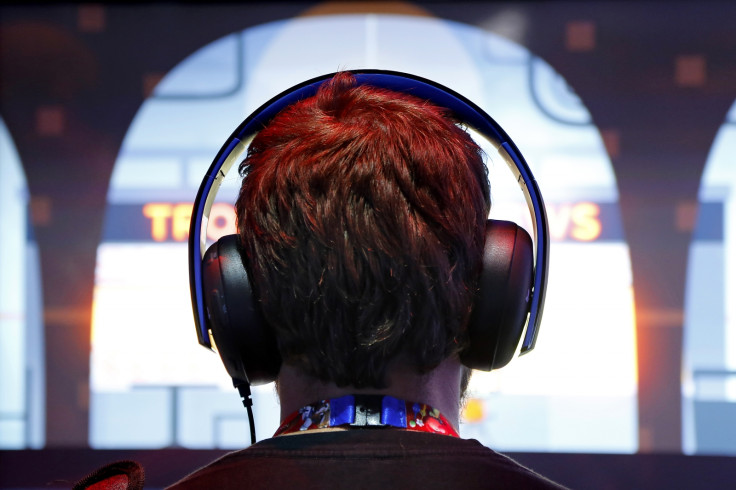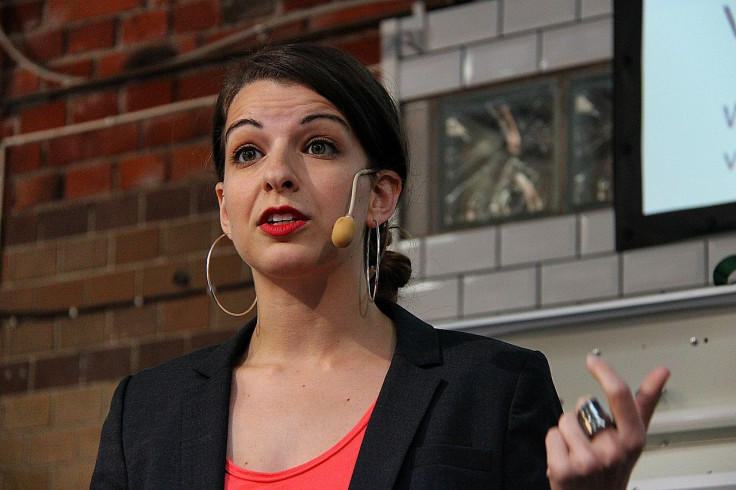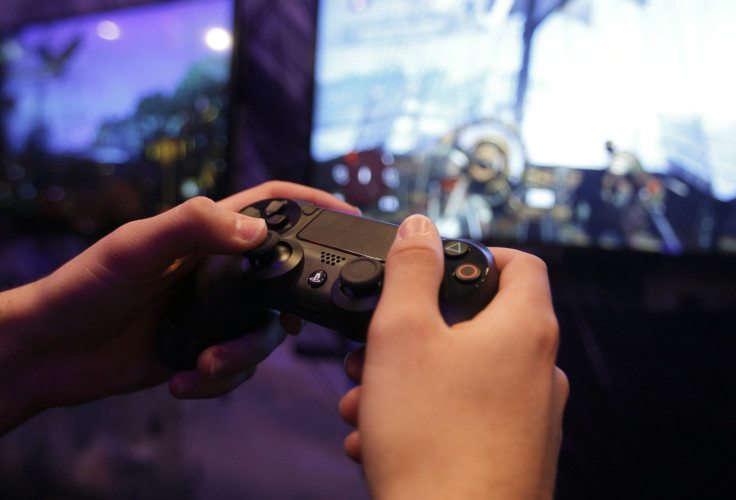GamerGate Interview: Supporter Discusses Controversial Movement, Its Goals and Threats of Violence

GamerGate is a controversy that has rocked the video game industry.
It started in August 2014 when game developer Zoe Quinn's ex-boyfriend claimed that she began a brief relationship with Kotaku journalist Nathan Grayson in an effort to garner favourable press coverage for her indie game Depression Quest.
Kotaku's editor Stephen Totilo cleared the matter up in a statement, confirming that the relationship did occur, but that Grayson had not written any articles relating to Quinn after the relationship began, and only one before it.
Before this statement proved the claims were unfounded, a vocal minority of the huge global gaming community saw the accusations as evidence of a corrupt gaming press. The label 'GamerGate' was coined by these supporters of a more ethical gaming media.

However, Quinn suffered a torrent of abuse, including threats of rape and death, from many of those associating with GamerGate both before and after Kotaku's statement.
Many industry figures came forward to defend Quinn and other women in the industry also receiving threats – such as developer Brianna Wu and Anita Sarkeesian, whose Feminist Frequency web series had seen her targeted before.
Those flying the GamerGate flag saw journalists and developers defending these women as evidence of collusion between the two groups. This saw a surge in the use of the phrase "Social Justice Warrior" to describe anyone siding with them or who is outspoken about issues of equality in gaming.
GamerGate supporters want such political issues removed from the video gaming zeitgeist.
In the weeks since it all began, GamerGate has continued to be in the headlines, even making it to the front page of The New York Times after Sarkeesian was forced to cancel a public talk following threats of a school shooting.
Two camps have emerged within the GamerGate movement. Those sending and coordinating threats targeting people within the industry, and those who decry such acts while claiming to fight for better ethics within games journalism.
Barry Smith, a 35-year-old supermarket worker from Dundee, Scotland, falls into the latter camp. Barry has agreed to talk to IBTimes UK about the GamerGate movement he keenly supports, and the controversy surrounding it.
Interview With a GamerGater
IBTimes UK: What is GamerGate [GG] and why do you support it?
Barry Smith: To me, GamerGate is fundamentally about ethical standards in video game journalism. Of course, the topics involved cover a lot of other ground, but fundamentally that's what it's about to me. I think however it may eventually come to represent a political awakening for gamers in general. We're all getting a bit older now.
You say GamerGate is about fighting unethical journalism. What do you want to see change in this regard?
Honestly, I'd like to see a definitive separation of advertising, criticism and review. The leaked Gamejournopro's list shows that one of the few sites to allow continued discussion of the GamerGate situation was The Escapist – which is part funded by subscribers. We're also seeing a lot of complaints from anti-GamerGate people about the practice of individuals targeting advertisers, and that to me just seems to indicate that the entire business of online journalism is entirely too dependent on advertising revenue.
Many involved in the movement don't want issues of sexism and racism to be part of video game criticism because it 'politicises the medium'. Do you believe games should be reviewed in this kind of cultural vacuum, and if so why?
This comes back to the separation of criticism and review. It seems to me that allowing the content of a video game to affect it's score, and through it the metascore, which has been criticised in the past, is dangerously close to a mechanism for manipulating what can and cannot be said in the medium of video games, and that to me doesn't seem to be in the interest of the medium or the audience. Frankly, I also don't see why the media agreeing to abide by a professional code of ethics would be bad either. I think they've generally done pretty well, but like I said earlier, we're all growing a bit older. Maybe it's time for video game media to do the same?

By content I take it you mean thematic content, so instead you would want games to be judged purely on a mechanical level?
I think if you're representing the game, and boiling the entire thing down to a number, then yes. I don't think objectionable content should be a justification for marking a game down, because it begs the question of 'who is doing the judging?' If you want to present an in-depth criticism and analysis of a game, that's something else. Personally I think perhaps I would like to see more criticism and less numbers.
Would you agree that the issue of abuse and threats being sent to women in the industry is inherently linked to GamerGate?
Abuse and threats are the sole property of the people who send them. If they're not acceptable as free speech from supporters of GG though, I question why it is considered perfectly acceptable to also target supporters of GG. In some cases the hypocrisy staggers me.
So you're saying that threats of violence are being sent in both directions?
Absolutely. [He then provides this link to examples of GamerGate harassment]
What are your thoughts on the abuse that has been sent to people like Zoe Quinn and Anita Sarkeesian?
Absolutely intolerable, completely unacceptable. We've not actually heard a word about it since those threats were initially made. Why have these people not been caught and held accountable for their words? Would this not be a subject of interest to all gamers?
What is your opinion of Anita Sarkeesian and her Feminist Frequency video series?
I'm not a fan. I absolutely believe that if people want to hear her talk though, they should be able to.
GamerGate has no obvious leadership. To what extent is this to blame for how events have unfolded?
I believe you're responsible for your own actions. Really, that's why I support GG. Because I am a gamer, I play games with gamers, and I would like to improve gaming. And I am now actively looking for ways in which gaming can be made a better 'space' for everybody.

The allegations of corruption made by Quinn's ex - which were crucial to the origins of GamerGate - were proven false. Doesn't this undermine GamerGate's whole ethos?
Personally I prefer to leave Ms. Quinn, and indeed feminism out of this. Frankly I came to GamerGate after most of that unpleasantness, and it doesn't seem directly important, except to people who would like to use claims of misogyny to write off a whole movement. I certainly could debate it, but the nature of the positive press she has received makes it difficult for a white nerd like me to engage with that side of the debate without being written off as a misogynist immediately.
Media coverage has universally portrayed GamerGate in a negative light, why do you believe this is?
It's heart-breaking, is what it is. I think it's been universally portrayed so because the focus of coverage from the beginning has been very much on the misogyny, and those facts make for far better news stories. And now that view is deeply entrenched.
The GamerGate name is tainted, so why don't supporters of it who denounce threats of violence, branch off and band together under a new name?
I don't believe that GG is tainted in any way except the perception of it in the media. That's certainly been the narrative I've seen, but I think there are a lot of gamers out there who - while they may not agree with the name - agree with the same things as me: that being a gamer is nothing to be ashamed of, that we want better media, and that we support inclusiveness and not death threats.
To me, it doesn't really matter what hash tag you put on it, except insofar as giving up the hashtag doesn't solve the problem of people's attitudes. All it would do is put a plaster on the consciences of people who have behaved no better, so they can pat themselves on the back and say: 'Aren't I a good person?'
What's the end game for GamerGate? At what point do you consider it 'mission accomplished'?
At this point, I really don't think it'll ever be 'over'. As I said before, I think what this represents in many ways is a political awakening for games, and those who play them. Gamers have politically been nudged awake a few times in the past, but I don't know that there's any going back to sleep after this.
Are you saying that you believe GamerGate will never get what it wants?
No. I mean that, whatever happens to the tag, the people, the real people behind it aren't going to just go away. If this was simply a movement of trolls, as is supposed, GamerGate probably would have been over within a week. I think that any open-minded exploration of what GamerGate actually means to people is going to lead gamers to new places and interests and those fresh insights are probably going to be amazing.
© Copyright IBTimes 2025. All rights reserved.



















